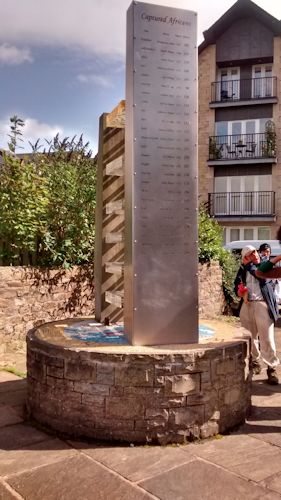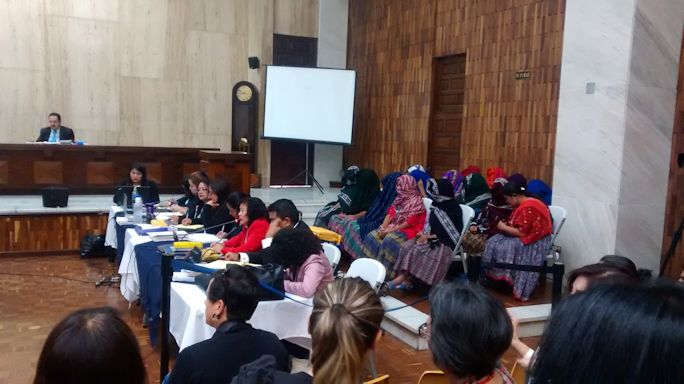Memory recovery and justice – is it possible to decolonise the past?
by Juliette Doman, Liverpool University
"We have a memory cut in pieces. And I write trying to recover our real memory, the memory of humankind, what I call the human rainbow, which is much more colourful and beautiful than the other one, the other rainbow. But the human rainbow had been mutilated by machismo, racism, militarism and a lot of other isms, who have been terribly killing our greatness, our possible greatness, our possible beauty."
Eduardo Galeano (2013) in an interview on Democracy Now.
“Only when lions are historians, will hunters cease to be heroes.”
West African proverb.
In her keynote lecture, given at the Bluecoat as part of the RENKEI Pax workshop and the activities to mark Slavery Remembrance Day and the 10th anniversary of the International Slavery Museum, award winning writer and director Amma Asante, cited this West African proverb, to highlight the connections between power and memory. Asante drew attention to how the agency and lives of those from oppressed groups – in this case Black women - are made invisible by a dominant historical narrative, which renders their descendants without a history.
Asante also spoke about recovering the stories of those who have been marginalised and forgotten and turning these stories into films, such as her 2013 film Belle, about the historical figure of Dido Belle. The film makes visible the agency and lives of Black British women and their roles in British history before the Windrush period.

Image: Slavery memorial, Lancaster, taken by the author
The lecture marked the end of an intensive week and a half of seminars, lectures, visits and other activities examining the connections between memory, history, politics and heritage, viewed through the lens of the transatlantic slave trade and its abolition. Memory was a prominent theme – including the related concepts of memory recovery and multi-directional memory – and the difference between memory and history.
Memory recovery, or the struggle to recover the stories and agency of people from historically oppressed groups, in particular women’s agency and stories, is deeply connected with my research. I am examining the struggle for gender justice of a group of Maya Q'eqchi women in Guatemala and the feminist and human rights organizations supporting them. The women are struggling for justice and reparations for the crimes committed against them, their families and their communities during the civil war (1960-1996).
The women's husbands were kidnapped and disappeared by the military after beginning the legal process to gain legal title to their ancestral land. Their claim to the land had angered landowners in the area, who denounced the peasant farmers to the military as “subversives”. The landowners were also laying claim to the lands in the fertile Polochic Valley region. The women were forced to cook the soldiers' food and wash their clothing on a military detachment built in the Sepur Zarco community, and were systematically raped at the base.

Sepur Zarco trial, Guatemala City February 2016
The struggle for truth and justice resulted in the pathbreaking Sepur Zarco trial, held last year. The trial prosecuted two former members of the military for sexual and domestic slavery, forced disappearance and the murder of one of the women and her two little girls. Both of the former members of the military were found guilty. The women survivors are now seeking collective reparations, to improve conditions in their communities.
My research focuses on what the trial means for the women and the supporting organizations. Memory recovery – or the reconstruction of the historical memory of Maya women – was an important part of the process. Being able to tell their stories of suffering and survival, before a judge, who listened to and believed them, was hugely important for the women. They want their stories to be remembered, so that no woman ever suffers what they have suffered.
Remembering is not a one directional process. In fact, remembering is always done in the present, in relation to the present. Remembering also raises other, more problematic questions – such as the contemporary legacies of historical oppression and injustice, and how to deal with these legacies. In Guatemala, these include the concentration of land and wealth in the hands of a small elite and transnational corporations. Many of the women in the case still do not have title to their lands. In contrast, a new process of land concentration is taking place.
In Liverpool, the legacies include the streets named after merchants who profited from the trade, like Penny Lane. In the US, there are many monuments and statues honouring Confederate leaders, who fought to defend slavery. As Ana Lucia Araujo argued in her keynote lecture, the struggles over the meaning of these statues and whether they should remain standing, notably in Charlottesville, reveal the unfinished nature of the past.
Remembering – in a public sense - is therefore a contested process, which reveals the continued inequality in the present. How, then, can we decolonise the past? Recovering the memories and histories of those “from below” is a start. Two projects stand out for me. The International Slavery Museum – and the Ink and Blood exhibition, which recovers the stories and agency of previously enslaved people in the struggle for abolition, and the Anti-Slavery Useable Past project, which critically analyses the contradictory history of abolition. Art works are an important part of both projects, since art speaks to our heart and imagination, helping us understand and express understandings of the unspeakable.